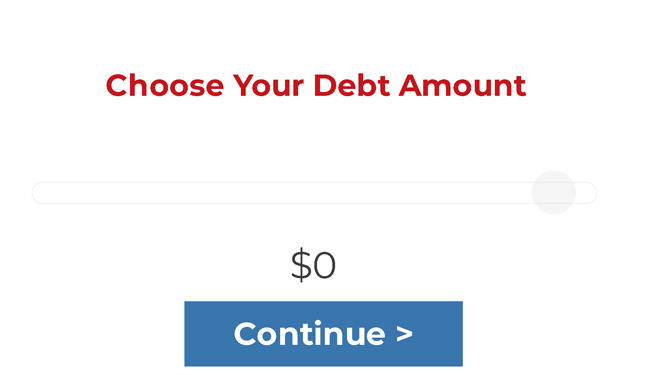Money Ladder is a financial services company that provides consumers with a range of debt relief solutions to help them regain control of their finances. They offer debt consolidation, debt settlement, and debt counseling services to help clients reduce their debt and improve their financial situation. Money Ladder works with a network of experienced debt specialists who work with clients to customize a debt relief plan that suits their individual needs.
In this blog post, we will take an in-depth look at how Money Ladder works, its pros and cons, and frequently asked questions about the company.

How does Money Ladder work?
Money Ladder is a debt relief program that helps individuals and families overcome financial difficulties by eliminating their outstanding debts. The program works by negotiating with creditors on behalf of clients to reduce their debt balances, interest rates, and monthly payments. Clients are required to make monthly deposits into a special account, which is then used to pay off their debts in a timely manner. As clients continue to make regular payments, the program also helps to improve their credit scores over time. Money Ladder offers a range of debt relief options, including debt settlement, debt consolidation, and credit counseling, to help clients achieve financial freedom and peace of mind.
Money Ladder Pros and Cons

Money Ladder is a debt relief company that offers debt settlement services to people who are struggling with their financial obligations. The company has both pros and cons that should be considered before using their services.
Pros
- Money Ladder can help negotiate with creditors to reduce debt balances
- Significant savings on outstanding debts can be achieved
- Offers free consultation to assess individual financial situation
Cons
- Company charges fees for services that can be high and may not be affordable for everyone
- Debt settlement can negatively impact credit score
- Debt settlement may take several years to resolve
- Not all creditors may agree to settle debts, leaving individuals in a worse financial situation.
It is important for individuals to carefully weigh the pros and cons of using Money Ladder’s services before making a decision.
FAQ

What is Money Ladder and how does it work?
Money Ladder is a debt relief company that aims to help individuals struggling with unsecured debt reach a debt free life. They negotiate with creditors to lower the outstanding balance and interest rates, allowing clients to pay off their debt faster.
Is Money Ladder a scam or a legit company?
Money Ladder is a legitimate debt relief company that has helped numerous clients successfully negotiate and settle their outstanding debts. They have a high satisfaction rate among their clients and are accredited by the Better Business Bureau.
How much does Money Ladder cost?
Money Ladder charges a fee of 15-25% of the total debt enrolled in their program. This fee is typically spread out over the course of the program, which typically lasts 24-48 months.
Can Money Ladder help with all types of debt?
Money Ladder specializes in unsecured debt, such as credit card debt, medical bills, and personal loans. They do not work with secured debt, such as mortgages or car loans.
How long does it take to see results with Money Ladder?
The time it takes to see results depends on the individual’s debt situation and the creditors they owe. Typically, clients begin to see results within 3-6 months of enrolling in the program.
Will using Money Ladder hurt my credit score?
Enrolling in a debt relief program may temporarily lower your credit score, as creditors may report the account as “not paid as agreed.” However, as you make payments and settle your debts, your credit score may improve over time.
Is there a minimum amount of debt required to enroll in Money Ladder’s program?
Money Ladder does not have a minimum amount of debt required to enroll in their program. However, they typically work by bringing relief to clients who have at least $10,000 in unsecured debt.
Can I still use my credit cards while enrolled in Money Ladder’s program?
It is recommended that clients stop using their credit cards while enrolled in Money Ladder’s program. Continuing to use credit cards may make it more difficult to negotiate with creditors and may result in additional debt.
What happens if I miss a payment while enrolled in Money Ladder’s program?
If you miss a payment while enrolled in Money Ladder’s program, it may delay the negotiation and settlement process with your creditors. It is important to communicate with Money Ladder and make arrangements to catch up on missed payments.
Will I owe taxes on the forgiven debt?
In some cases, forgiven debt may be considered taxable income by the IRS. Money Ladder recommends consulting with a tax professional to determine if you will owe taxes on any forgiven debt.
Glossary
- Money Ladder – a company that offers debt relief services to help individuals get out of debt.
- Debt Relief – the process of reducing or eliminating debt through various methods such as debt consolidation, negotiation, or settlement.
- Scam – a fraudulent or deceptive scheme designed to deceive and defraud individuals for personal gain.
- Legit – a term used to describe a legitimate or genuine business or service that operates within legal boundaries.
- Debt Consolidation – the process of combining multiple debts into a single loan or payment plan to simplify payments and potentially lower interest rates.
- Debt Negotiation – the process of negotiating with creditors to reduce the amount owed or to create a more manageable payment plan.
- Debt Settlement – the process of settling a debt for less than the full amount owed, typically through a lump sum payment.
- Creditors – individuals or companies to whom a debt is owed.
- Interest Rates – the percentage of the amount borrowed that is charged as interest over a specified period of time.
- Monthly Payments – regular payments made towards a debt over a specified period of time.
- Debt-to-Income Ratio – a measure of an individual’s debt compared to their income, used to determine creditworthiness.
- Credit Score – a numerical representation of an individual’s creditworthiness, based on their credit history and financial behavior.
- Financial Hardship – a situation where an individual is experiencing financial difficulties, such as job loss or unexpected expenses.
- Debt Relief Program – a program designed to help individuals reduce or eliminate debt through various methods.
- Debt Relief Company – a company that offers debt relief services to individuals in financial hardship.
- Debt Management Plan – a payment plan designed to help individuals pay off debt over time, typically through a third-party service.
- Bankruptcy – a legal process where individuals or businesses can declare themselves bankrupt and have their debts discharged or restructured.
- Consumer Credit Counseling – a service that provides financial education and counseling to help individuals manage their debts and improve their financial situation.
- Debt Snowball – a debt reduction strategy where individuals focus on paying off smaller debts first to gain momentum and motivation.
- Debt Avalanche – a debt reduction strategy where individuals focus on paying off debts with the highest interest rates first to save money on interest over time.
- Trustpilot reviews: “Trustpilot reviews” refer to customer feedback and ratings that are posted on the Trustpilot website, which is an online review platform that allows consumers to share their experiences and opinions about businesses and products. These reviews are intended to help other consumers make informed decisions and to hold businesses accountable for their actions and customer service.
- Daily expenses: The regular costs incurred on a day-to-day basis for basic necessities such as food, housing, transportation, and other essential expenses. These are the expenses that individuals or households incur regularly to maintain their standard of living.






